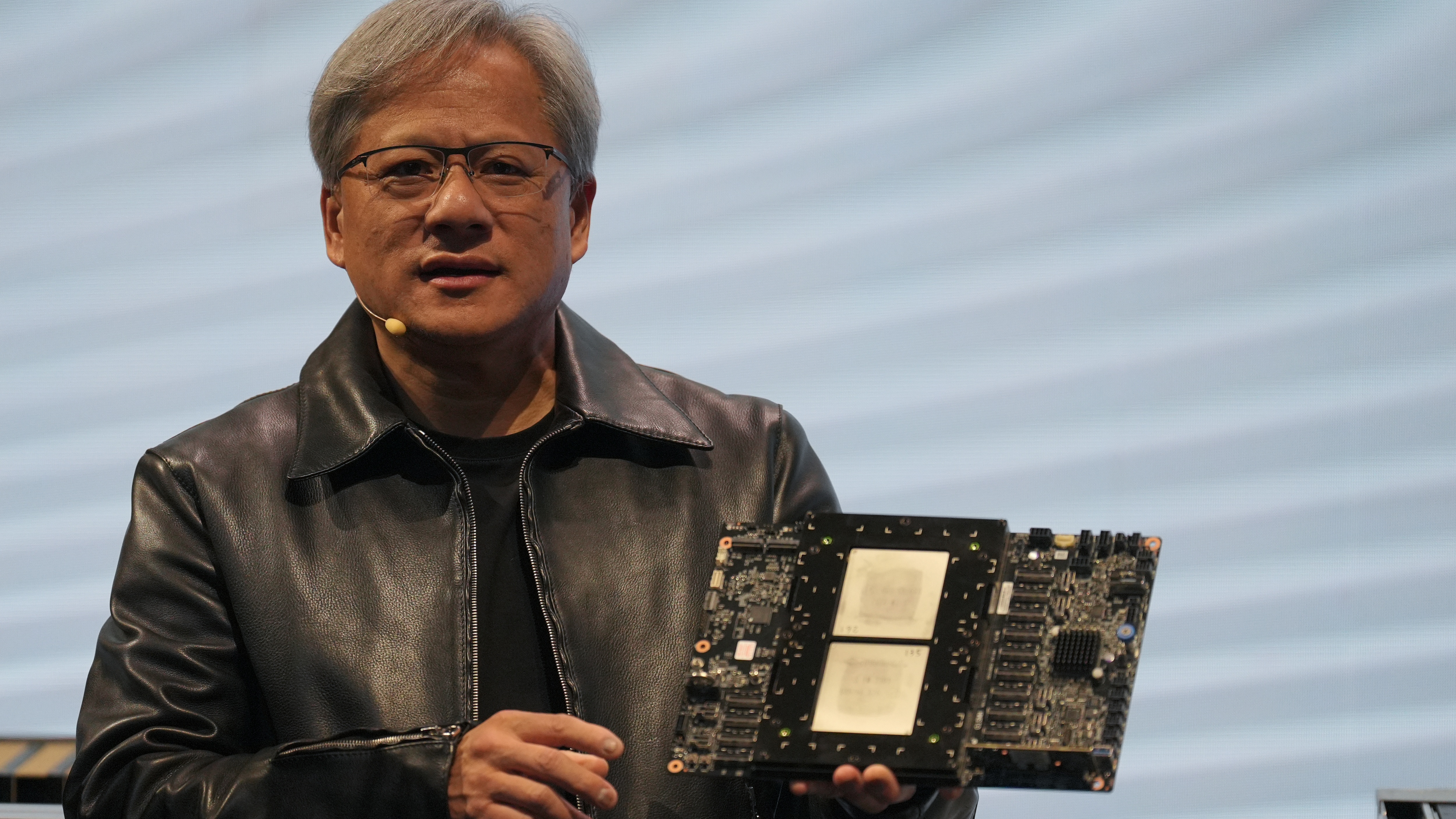Jacob Fox
Curated From www.pcgamer.com Check Them Out For More Content.

Yeah, I get it, we already know that Nvidia’s sold a motherlode of chips and is laughing its way to the bank. But it hits a little differently to see the actual numbers.
As reported by the Financial Times, the tech consultancy Omdia estimates that Nvidia’s biggest purchaser of Hopper chips in 2024 was Microsoft, who bought 485,000 of them, this being over twice as many as any other company. Meta, for example, bought 224,000 of them, Amazon bought 196,000, and Google bought ‘just’ 169,000.
Surprisingly, though, two of Nvidia’s biggest customers were Chinese ones, these being ByteDance (of TikTok fame) and Tencent (of numerous videogames fame). According to Omdia, these each ordered about 230,000 Hopper chips. These won’t have been the most powerful ones Nvidia has at its disposal, though, given US-China export restrictions.
In other words, despite export controls, Chinese companies received more Nvidia chips than companies such as Meta, Amazon, and Google this year.
Apart from all the China biz, there are two other things that strike me about these numbers. First, and very simply: Holy moly does Nvidia churn out a lot of a AI chips. Second: Holy moly does Microsoft buy a lot of them.
Nvidia’s part kind of goes without saying. The company is firmly cemented as the king of the ever-expanding AI infrastructure castle. So much so, in fact, that the company’s CEO, Jen-Hsun Huang, has the chutzpah to claim that “just like we generate electricity, we’re now going to be generating AI” in “AI factories”.
As far as Microsoft’s concerned, while I’m a little surprised to find the company more than doubling the purchases of any other, it also makes sense, especially given the partnership with OpenAI.
The AI industry can seem a little confusing when you start to look into how all these different companies relate to each other. But we shouldn’t forget that while OpenAI technically isn’t the biggest company in the AI space, most of the companies that are bigger actually rely on OpenAI’s software and models and have partnerships with the company. So much is true for now, at least—although newer entrants such as Anthropic and Musk’s xAI could make inroads.
And if we’re talking OpenAI partnerships, Microsoft’s is the one. To date, Microsoft has apparently invested $13 billion into OpenAI and is the exclusive provider of the company’s cloud computing services. This partnership grants Microsoft all kinds of benefits, such as OpenAI model integration with Bing, Microsoft 365, Copilot, and so on, not to mention the ability to rent OpenAI-clad Azure servers out to customers for private or bespoke AI research or services.
Oh, and there’s the simple matter of monetary ROI. But it’s surely crude to speak of such things (profit motives in such a civil society? I think not).
People want AI and OpenAI is the biggest software-level solution, so Microsoft heavily invests in and partners with OpenAI, and Nvidia sells Microsoft a sweet, sweet stack of silicone to get the job done. Simple.
But who’s the real winner? The end-user, of course!
Just kidding, the real winner’s Nvidia, of course and as always. As Baron Harkonnen of Frank Herbert’s Dune tells us: “He who controls the spice controls the universe.” And Hopper’s the spiciest spice in town, right now.
Well, it’ll be Blackwell, soon, but that’s Nvidia, too. Huang probably made the right choice going into tech and ditching a promising table-tennis career.
